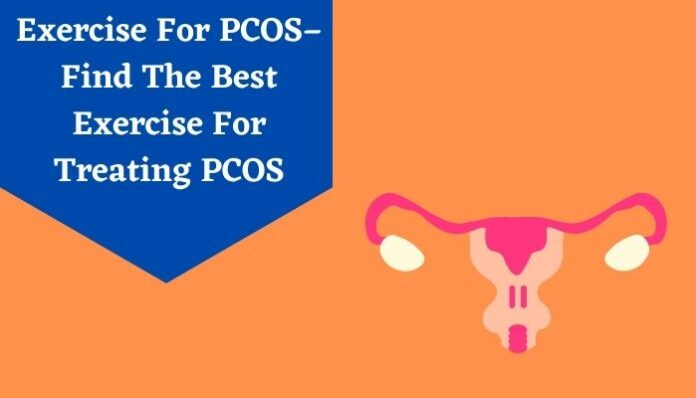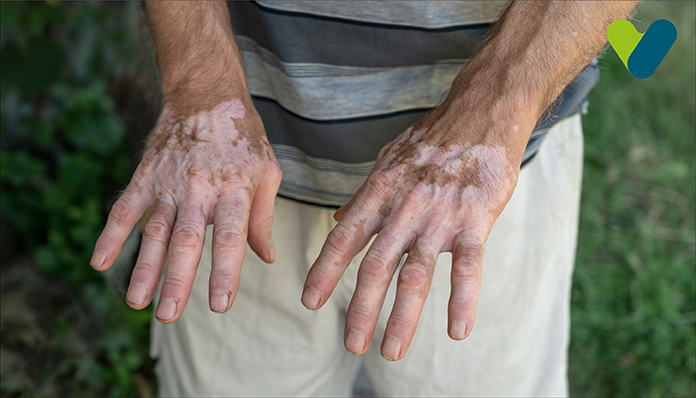Sharmistha (25-years-old) is a bubbly and vivacious girl who works in a private company. Over the past few days, she was diagnosed with the polycystic ovarian syndrome (PCOS). She consulted a gynecologist and the doctor told her to focus on lifestyle changes. She recommended doing some exercise for PCOS and adopting a healthy diet plan that will manage and control PCOS.
PCOS is a lifestyle disorder that hits nearly 8-13% of women in their reproductive age. In PCOS, an inequality of reproductive hormones contributes to several issues including irregular ovulation, irregular egg development, irregular or missed periods, infertility, excess hair on the face and chin, acne, weight gain, and thinning hair.
Let us first discuss the symptoms of PCOS before throwing light on some of the best exercises for PCOS and worst exercises for PCOS.
Symptoms of Pcos
- High blood cholesterol levels
- Sleep apnea
- High blood pressure
- More pregnancy complications, such as gestational diabetes and pre-eclampsia can cause an organ damage
Physical Exercises for Polycystic Ovary Syndrome (PCOS)
Women who have PCOS may experience higher rates of insulin resistance as compared to those who don’t have the condition. Insulin resistance prevents your body from utilizing blood sugar for energy.Many doctors have claimed that a lack of physical activity and excess body weight are responsible for enhancing your insulin resistance. Not every woman who is dealing with PCOS will have an overweight issue. But physical exercises are the best that you can do to improve your health if you have PCOS.
Also Read: How to Lose Weight with PCOS
Reduce BMI
In PCOS, you are advised to do various aerobic exercises that will minimize body mass index (BMI) and insulin resistance in women. The experts recommend performing moderate to vigorous exercise. Along with vigorous exercise, a healthy diet is also needed to decrease body mass index (BMI).5 Physical Exercises for Polycystic Ovary Syndrome (PCOS)
Let’s take a look at some of the best exercises for PCOS:1. Steady-State Cardiovascular Workouts: These exercises are beneficial for your heart as they make your heart pump up. If you indulge yourself in moderate exercise, then it can go up to 50 to 70 percent of your maximum heart rate. To calculate your maximum heart rate, you need to subtract your age from 220. Aerobic exercises that belong to this category are walking, riding a bicycle, dancing, or joining various aerobic classes.
2. HIIT Workouts: High-intensity interval training (HIIT) exercises include burpees, tuck jumps, and mountain climbers. Several studies have claimed that women with obesity experienced better results with HIIT exercises as compared to those who indulge only in continuous moderate to vigorous exercise.
3. Interval Training: These exercises will help you to maintain your heart rate. In this type of exercise regime, you need to do various exercises in the same session to keep your heart rate up.
4. Mind-Body Exercises: Several medical studies have proved that women with PCOS have an enhanced bodily response to stress and distress. Mind-body exercises including yoga, Pilates, and Tai Chi will not only burn calories but also lessen stress levels that aggravate your PCOS symptoms.
5. Strength Training: In strength training, you need to use your own bodyweight to build up muscles. This training is beneficial in building healthy muscles and bones. If you enhance your muscle mass, this will help you to burn more calories at rest, and thus, help you to maintain a wholesome weight.
Exercise Plan to Combat PCOS
Women who are having PCOS should perform at least 30 minutes of moderate to vigorous physical activity in a day. You may gradually enhance your exercise schedule to get the best results. Some of the ways by which you can incorporate exercise into your daily regime are:- Make your own interval training session
- Squats
- Jumping jacks
- Lunges
- Bicep curls
- Crunches
- Walk on a treadmill or outdoors for at least 30-40 minutes
- Hit a gym or go for aerobic classes like dancing, boxing, or spinning.
- Go for a HIIT class at a gym or check with YouTube to find some videos
- Practice yoga, Pilates, or tai chi at a studio, gym, or go for an online class
Diet and PCOS
Though exercise is very effective in managing your PCOS, a healthy diet also plays an imperative role in controlling your PCOS. Thus, doctors always recommend paying attention to your food habits if you have PCOS.- If overweight, minimize your calorie intake by 500 to 1,000 calories per day
- You need to consume a total fat less than 30 percent of your total source of calories for the day. Saturated fats, like high-fat beef, butter, cheese, and full-fat dairy products, should be in your diet less than 10 percent of your total calorie intake
- Consume higher-fat foods for fiber, whole-grain bread, and cereals. Nuts and avocados are excellent sources of fats
- Take less than 200 milligrams of cholesterol a day
- Avoid trans-fat as much as possible
- Include an additional 5 to 10 grams of fiber in your diet routine per day
Eating Habits
- Cook foods with healthy fats like olive oil
- Consume more vegetables, such as broccoli, kale, spinach, and peppers.
- Include a bowl of beans, nuts, or lentils
- Consume vitamin C foods like grapes, blueberries, oranges, and cherries
- Choose whole-grain bread and pasta



